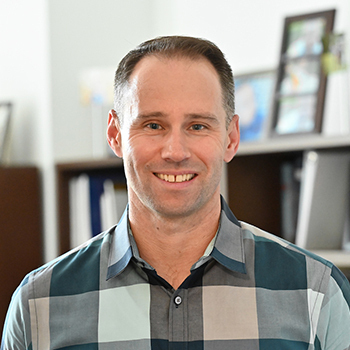There’s no ‘one size fits all’ when it comes to addressing men’s health issues globally

Even with important strides in addressing health issues across the globe, men have not benefited equally compared to women. Men’s life expectancies have not grown as steadily as women’s over the past few decades, and they are expected to live about five years less than women, according to 2021 global health data from the Human Mortality Database and the United Nations’ World Population Prospects. The discrepancy in life expectancy between men and women persists in places all over the world, and is even growing in other places.
At a time when health resources are at a premium and need to be wisely allocated, health professionals must find points within men’s lives when it makes the most sense to intervene and advocate for preventive care for promoting better health outcomes. Life transitions such as marriage and fatherhood are often pivotal and crucial intervention points — and men often experience long-term health benefits from those family roles, with lower mortality risks than single men without children. But just like every man is different, health concerns across global communities differ as well.
Research from the University of Notre Dame finds that not all life transitions produce the same health results, and not all men’s global health policies should look the same from one country to another.

In most contexts in the United States and Europe, men tend to experience physical health changes when they get married and start having a family. These changes include an increase in waist circumference and body mass index — a phenomenon known as the “dad bod,” explained Lee Gettler, associate professor of anthropology and chair of Notre Dame’s Department of Anthropology.
But Gettler’s research found that this phenomenon actually differs across societies. His study, recently published in the journal Social Science and Medicine, used a large longitudinal dataset from the Philippines to explore how men’s physical health changed across transitions to either marriage or cohabitation and fatherhood. His and his co-authors’ findings present a different picture of Filipino men’s health as it relates to these major transitions, compared to what is commonly seen in the U.S. and Europe.
Gettler worked with scientists from the University of Michigan, Northwestern University and the University of San Carlos in Cebu City, Philippines, to conduct and compile the research.
“Our research shows that the links between physical health with marriage and fatherhood are different for Filipino men in Cebu than they are in places like the United States or Europe,” said Gettler, who is also director of Notre Dame’s Hormones, Health and Human Behavior Lab and faculty affiliate with the Eck Institute for Global Health.
Gettler and his fellow researchers collected socio-demographic, health, behavioral and testosterone data from a long-running birth cohort study of Filipino men at ages 21, 26 and 31 (approximately) between 2005 and 2014. The researchers discovered that their group of 607 men fared much better than men in other cultures at the same stages of life.
“We don’t find that the married or cohabitating Filipino men have the same kind of negative health trajectories in terms of their physical well-being compared to the Filipino men who stayed single in our study,” Gettler said. “They are not experiencing deteriorating health, or demonstrating the dad bod, as a consequence of becoming a partner or father.”
The study acknowledged the myriad reasons behind this difference in outcome and said that diet and physical activity, as well as the social dynamics surrounding partnering, could explain such results. In addition, the study revealed that the Cebu men who were stronger and more muscular in their early 20s were more likely to later become partnered in the first place — a pattern the co-authors described as the “marital selection” model.
“Our findings indicate that an emphasis on men’s body composition as they transition to partnering and parenting may be less critical in Cebu and similar contexts,” the researchers wrote, compared to prioritizing other potential men’s health issues at this same stage in life, such as mental health.
“The transition to fatherhood represents a promising developmental period to encourage men to attend to their own health,” continued the co-authors, with the added benefit being overall family health in the long run. But, they cautioned, it is crucial to direct those promotional efforts and resources to the most pressing needs within a specific socio-ecological setting and community.
“In global public health, men’s well-being is often a secondary concern, despite men faring poorly compared to women on multiple dimensions of health across the life course,” Gettler said. “But to help address this gap, we not only need improved strategies and policies, but we also require a more robust understanding of factors that shape mens’ health across diverse contexts.
“This means we cannot simply transport a ‘one size fits all’ policy on men’s health and family life from one context to other settings around the world.”
Contact: Tracy DeStazio, associate director of media relations, 574-631-9958 or tdestazi@nd.edu
Latest ND NewsWire
- Notre Dame celebrates new pope; Father Dowd offers prayersRev. Robert A. Dowd, C.S.C., president of the University of Notre Dame, offered his prayers for Pope Leo XIV, elected by the College of Cardinals today in Vatican City as the 267th pontiff of the Catholic Church.
- Collaboration with National Education Equity Lab to Create Pathways to Notre DameA group of campus units led by Notre Dame Learning’s Office of Digital Learning are building a pathway to the University for students who might not otherwise envision themselves as candidates to attend. It is an initiative made possible through a collaboration with the National Education Equity Lab, which partners with top universities to deliver actual college credit-bearing courses and supports to scholars in low-income high school classrooms across the nation.
- Clare Cullinan named valedictorian, Bennett Schmitt selected as salutatorian for the Class of 2025Clare Cullinan of South Bend, Indiana, has been named valedictorian and Bennett Schmitt from Jasper, Indiana, has been selected as salutatorian of the 2025 University of Notre Dame graduating class. The 180th University Commencement Ceremony will be held May 18 (Sunday) in Notre Dame Stadium for graduates and guests. During the ceremony, Cullinan will present the valedictory address, and as salutatorian, Schmitt will offer the invocation.
- Notre Dame’s Fightin’ Irish Battalion receives Department of Defense award as nation’s top Army ROTC programThe United States Department of Defense honored the University of Notre Dame’s Army ROTC Fightin’ Irish Battalion as the nation’s top Army collegiate program for the 2023-24 academic year. This will be the first time the unit has received the department’s Educational Institution Partnership Excellence Award, which recognizes the program’s achievements in recruiting, educating, training and commissioning leaders of character to be the next generation of military officers.
- In memoriam: Karl Ameriks, the McMahon-Hank Professor of Philosophy EmeritusKarl Ameriks, the McMahon-Hank Professor of Philosophy Emeritus at the University of Notre Dame, died on April 28 from pancreatic cancer. He was 77. Born in post-World War II Germany, Ameriks’ family emigrated to the United States when he was a child, and he grew up in Detroit, Michigan. He received his bachelor’s and doctoral degrees from Yale University. He came to the Department of Philosophy at Notre Dame in 1973 during a formative time for the department, which had transitioned from a predominantly Thomist focus to the more analytical American philosophy in the 1960s.
- Senior James Reintjes named 2025 Yenching ScholarUniversity of Notre Dame senior James Reintjes has been named a 2025 Yenching Scholar. He is one of 114 Yenching Scholars overall, representing 40 countries and regions around the globe. He is Notre Dame’s 12th Yenching Scholar and its 9th since 2018.













